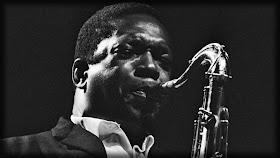It happened at one of the two concerts by Jarrett's Standards Trio we caught together at the Festival International de Jazz de Montréal during the time when our older daughter lived in the city's Old Port, just a short, romantic walk from the festival's venues.
Our collective faded memory has shrouded most details of the concert (Was it the time that Jarrett went off on a rant about the francophone media? or Was it the night that we convinced each other that the woman seated in the row in front of us bore a striking resemblance to a notorious serial killer?) but what we both recall with crystal recollection is the version of "You Belong To Me" the trio played.
Did Jack DeJohnette and Gary Peacock even play on the tune? Who knows. All we recall is the extraordinary improvisation that Jarrett reeled out. I've always enjoyed the Patti Page version of the song, which has been covered by everyone from Dean Martin to Gene Vincent to The Misfits (one of our younger daughter's favourite punk bands), but Jarrett's interpretation took the song far beyond anything that had been recorded in the dozen popular versions.
It was, perhaps—actually, memory says there is no perhaps about it—the most moving thing we've heard Jarrett play, and we have spent no small amount of time listening to him. And yet, a search of Jarrett's database shows that he has never released a version of the song. There are multiple interpretations of various pop standards from the same era, but no "You Belong To Me."
Once, knowing that my friend Nobu Stowe—a Japanese pianist who plays in a style akin to Jarrett's—was interviewing Jarrett for a Japanese publication, I inveigled him to ask why he had never included a version of the song on one of the trio's many live recordings. According to Stowe, Jarrett recalled the Montreal performance and shrugged.
So, without recorded evidence of the brilliance we recall, the performance—Jarrett's stunningly gorgeous inventions and extrapolations of the harmony and melody—haunts us, coming up repeatedly in our conversations.
At this point, we are almost at the point where we don't want to hear it. It could never live up to our memories, and that is so much the essence of great improvisation. It lives in the moment, is enjoyed, forms memories without our even knowing it, and is gone.
Keith: If, by some odd chance, you encounter this, release a version of "You Belong To Me" at your own risk. Our standards are high.

